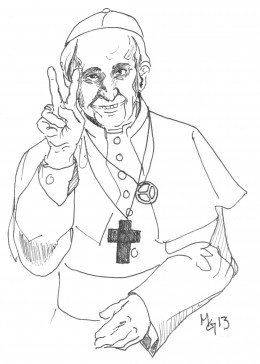
You may have noticed a trend on campus this week. Lemons and leaves, everywhere.
If you’re of the Jewish faith, you may have stopped to perform a mitzvah, a commandment or good deed, by shaking a lulav and an etrog in honor of Sukkot. If not, you probably smiled politely and carried on, maybe with a remark about the prevalence of Jewish groups on campus, or a plan to ask one of your hundreds of Jewish friends what this leaf-shaking business is all about.
While you may feel like we practically go to a Yeshiva, the truth is in the numbers: Only about 30% of Binghamton University students are Jewish. So why is it that groups like Chabad and Hillel are so visible on campus? With campus-wide inclusive programs like Shabbat 1500, Purim Carnival and the annual Yom Ha’atzmaut celebration, students of all faiths generally feel welcomed by the Jewish community at BU. Scarcely does a non-Jew graduate without attending at least one Shabbat dinner with his or her friends.
We wonder, why don’t we see people similarly flocking to events run by InterVarsity Christian Fellowship and Campus Bible Fellowship? That’s not to say we should equate Judaism with Christianity as analogous parts; we understand that the cultural rather than purely religious aspects of Judaism give it a different feel and perhaps a broader reach. However, we think part of it may also stem from the fact that there seems to be less stigma attached to being actively Jewish, as opposed to Christian, on campus.
Christianity, though founded in ideals of peace and love, has oft been painted as a symbol of intolerance, fear-instilling tactics and mindless rule-following. Images come to mind of Bible-thumping evangelists spewing homophobic hatred and pro-life propaganda. The stigmas associated with Christianity, and especially Catholicism, have much to do with these exclusionary beliefs that have been unfortunately ingrained in the religions’ histories.
But we have hope. A recent interview with Pope Francis signaled a change not in fundamental religious values, but in papal policy and in the tenor of several key discussions within the Catholic Church. Calling the church “obsessed” with abortion, gay marriage and contraception, the pope made it clear that his mission is to create a “home for all” within the current framework.
We — an editorial board of four Jews and a Catholic — applaud Pope Francis’ progressive push toward inclusion, with an important shift from attention to a few hand-picked politicized issues back to the peace and love that Christianity is meant to represent. His message, we believe, will resonate with college students in a way we haven’t even seen before.
We hope that by bringing the focus back around to the hippie creed that every college student holds a piece of in his or her personal philosophy, the stigmas surrounding Catholicism, and Christianity as a whole, will start to break down. Here’s to hoping that Pope Francis’ tolerance will make it cool to be Christian again.


